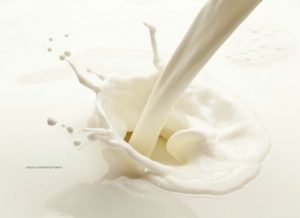A second Campylobacter outbreak that has sickened at least five people has been associated with a cow-share program on the Kenai Peninsula, according to the Alaska Department of Health and Social Services. A March Campylobacter outbreak associated with that same cow-share sickened 31 people, leaving four with reactive arthritis.
 Two of the five people sickened in this outbreak sought medical attention. Testing by the Alaska State Public Health Laboratory matched the outbreak strain of Campylobacter jejuni to one found in cow manure at the farm during the earlier outbreak. “The genetic fingerprint of the bacteria isolated from these two people and the cow is unique. It has never been seen before in the United States,” Dr. Joe McLaughlin, State Epidemiologist, said in a statement. “These outbreaks are an unfortunate reminder of the inherent risks associated with raw milk consumption, and underscore the importance of pasteurization.”
Two of the five people sickened in this outbreak sought medical attention. Testing by the Alaska State Public Health Laboratory matched the outbreak strain of Campylobacter jejuni to one found in cow manure at the farm during the earlier outbreak. “The genetic fingerprint of the bacteria isolated from these two people and the cow is unique. It has never been seen before in the United States,” Dr. Joe McLaughlin, State Epidemiologist, said in a statement. “These outbreaks are an unfortunate reminder of the inherent risks associated with raw milk consumption, and underscore the importance of pasteurization.”
In Alaska, raw milk is illegal unless the milk is consumed by the cow’s owner, so raw milk enthusiasts there form cow or goat shares. Members of animal-share programs are considered owners of animals that are tended by a farmer.
Symptoms of a Campylobacter infection include diarrhea, muscle plain, abdominal pain and fever which can persist up to 10 days. These infections are especially hard on young children, seniors and those with compromised immune systems including pregnant women. A Campylobacter infection can aslo have long-term complications including reactive arthritis , which causes swelling, heat redness and pain in the joints; and Guillain-Barre Syndrome, which causes paralysis and can sometimes be fatal.




